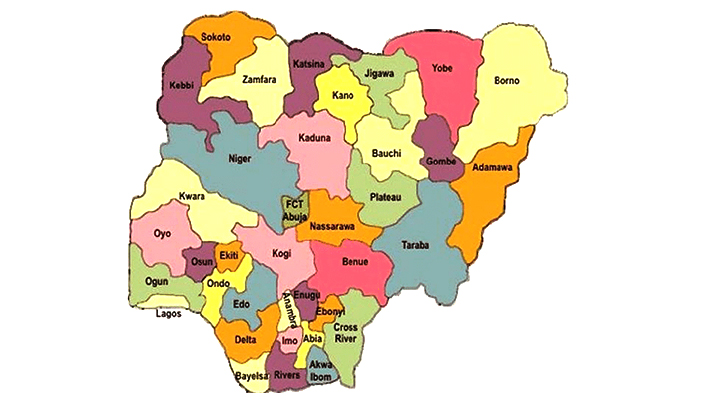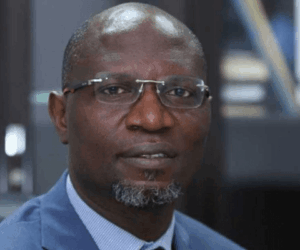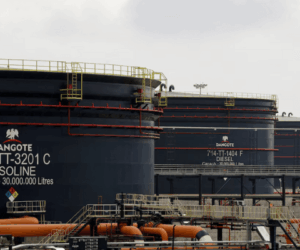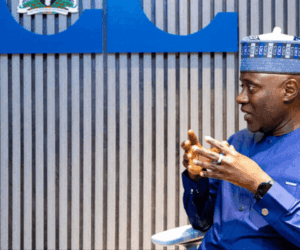When Failed State 2030: Nigeria – A Case Study was published in 2011 by the U.S. Air War College, it was received with both fascination and quiet indignation. The paper, written by a team of senior U.S. Air Force officers, framed Nigeria as a potential epicentre of global instability — a vast, oil-rich federation teetering under corruption, ethno-religious tension, and weak institutions, whose implosion could ignite Africa and disrupt world energy supplies. Fourteen years later, Nigeria remains intact, bruised but not broken, yet the shadow of that scenario still looms. With the country battling overlapping insurgencies, rural banditry, separatist agitation, and an economy under siege, the paper reads less like a relic and more like a diagnostic test. And, in a bitter twist of irony, President Trump’s recent threats of military action against Nigeria have dragged that hypothetical “failed state” scenario back into the global conversation, with disquieting immediacy.
“The difference, of course, is that Nigeria in 2025 is not the fictional carcass of a failed state. It is a complex democracy struggling to survive under extraordinary strain, and Trump’s threats, couched in moralistic terms, risk compounding that complexity even further.”
The 2011 study was never meant to be a prophecy. Its authors described it as a “stress test”—a strategic fiction meant to examine how the United States might respond if a pivotal regional power were to collapse. Nigeria was not singled out for imminent failure but for its sheer consequence. A population surpassing 150 million at the time (now over 220 million), vast oil reserves, and a geostrategic position in West Africa made it the perfect case study for worst-case planning. The scenario it imagined was dramatic: by 2030, unchecked corruption, rapid population growth, and festering regional grievances would splinter Nigeria into warring enclaves, prompting international intervention to secure critical oil and gas assets.
To be fair, the authors grounded their projection in obvious realities: Nigeria’s dependence on oil, the corrosive grip of elite capture, religious and ethnic fragmentation, and insurgency. They warned that if the state continued to hollow out, its collapse would be like “fine china dropped on tile.” The metaphor stung, but it captured a fear long whispered in foreign-policy circles.
The intervening years have confounded that binary of failure and survival. Nigeria has neither collapsed nor cohered. Instead, it inhabits a grey zone of enduring fragility — a functioning but brittle state that survives by improvisation. The World Population Review’s Fragile States Index of 2024 ranks Nigeria as the world’s 15th most fragile nation, even worse than Libya and Ukraine. And the evidence is visible everywhere: insurgency in the North-East; rural banditry across the North-West; violent farmer-herder clashes in the Middle Belt; separatist agitations in the South-East; oil theft and cult violence in the Niger Delta; and the quiet despair of citizens nationwide.
Now, layered atop this internal crisis comes external pressure—most notably from President Trump, who has declared that the United States “could deploy troops or launch airstrikes in Nigeria” if Abuja fails to protect Christian communities from violence. Trump announced that the United States had restored Nigeria to its list of “Countries of Particular Concern” for violating religious freedom and warned that U.S. aid “will immediately stop” if the Nigerian government does not act. Meanwhile, the Nigerian government swiftly rejected both the characterisation and the threat, stating that Nigeria “will not be lectured or coerced” by any foreign power and emphasising that both Christians and Muslims have been victims of the same cycles of rural banditry and extremist attacks.
For many Nigerians, Trump’s remarks sound like the sequel to Failed State 2030. What began as a hypothetical scenario — U.S. forces intervening in a fragmented Nigeria — is now being publicly entertained by the U.S. president. The difference, of course, is that Nigeria in 2025 is not the fictional carcass of a failed state. It is a complex democracy struggling to survive under extraordinary strain, and Trump’s threats, couched in moralistic terms, risk compounding that complexity even further.
To juxtapose the 2011 paper and the 2025 reality is to recognise both continuity and distortion. The original study correctly anticipated that security vacuums would breed alternative authorities: armed groups, religious movements, and criminal syndicates, offering their own order in place of the state. That has materialised: in parts of Zamfara and Katsina, villagers pay levies to bandits for permission to farm; in Borno and Yobe, insurgent factions collect taxes and regulate markets; in the South-East, separatist militias enforce “sit-at-home” decrees through violence. The map of Nigerian sovereignty has become patchwork, its authority strong in Abuja but negotiable in parts of the hinterland.
But the 2011 analysis falters in its energy-centric worldview that Nigeria’s collapse would cause a global oil shock, demanding U.S. intervention. In 2025, U.S. shale production, renewable-energy transitions, and Nigeria’s own chronic mismanagement have eroded that leverage. Today, Nigeria matters less for its oil and more for its demographics, its security role in a coup-prone West Africa, and its symbolic weight as Africa’s largest democracy. The fault lines are now social and institutional, not just petro-political.
Trump’s rhetoric revives the Cold War instinct to view African instability through a lens of American prerogative. His invocation of religious persecution, framed narrowly as “killings of Christians”, ignores the grim symmetry of suffering across communities. In many of the same regions where Christian villages are attacked, Muslim communities are also being massacred by the same bandits or rival factions. Violence in Nigeria, while often expressed through ethnic or religious identity, is fundamentally a competition for economic resources in spaces where the state is absent or ineffective.
Read also: Is Nigeria a failed state?
Still, Trump’s intervention underscores a painful truth: Nigeria’s domestic insecurity has become globalised. When a U.S. president feels entitled to threaten military action, it reflects how Nigeria’s internal disorder is now perceived as a transnational problem — humanitarian, religious, even moral. That perception, whether fair or not, erodes Nigeria’s diplomatic standing and invites external narratives to define its destiny.
Truly, Nigeria can ill afford the perception of drift. It must treat Trump’s provocation not merely as an insult but as a warning — a mirror held up to its sovereign vulnerabilities. For years, reform blueprints have promised transformation: Yar’Adua’s Seven-Point Agenda, Jonathan’s Vision 2020, Buhari’s Economic Recovery and Growth Plan, and now Tinubu’s Renewed Hope Agenda. But beneath it all, the fundamentals remain unchanged: an underachieving security architecture, an unfair justice system, and local governments too weak to deliver basic services. The failure is not existential collapse but the steady erosion of state legitimacy.
Reclaiming that legitimacy requires more than counterinsurgency. It demands a reimagining of governance from the bottom up. Nigeria must decentralise its security response, enabling state and community policing under constitutional safeguards, while strengthening coordination at the federal level. It must professionalise the military and invest in intelligence and technology rather than simply expanding force size. It must also invest in the invisible foundations of stability: education, rural infrastructure, and youth employment.
Externally, Nigeria must recalibrate its diplomacy. It should welcome cooperation against terrorism while rejecting the paternalism of foreign ultimatums, since true partnerships are built on shared security interests, not the threat of invasion. Nigeria’s leaders must communicate that distinction with clarity—neither bristling with nationalism nor bending with deference. In the twenty-first century, sovereignty is sustained not by rhetoric but by competence.
As 2030 draws near, the fictional year of collapse imagined in that Air War College scenario, Nigeria’s story remains in flux. The country is not a failed state; it is a fatigued state, burdened by contradictions yet buoyed by resilience. It has endured a major civil war, coups, and economic shocks that might have destroyed lesser nations. But endurance is not the same as progress. The biggest danger is complacency — mistaking survival for success or external criticism for interference. Trump’s threats may fade with the news cycle, but the vulnerabilities they exploit are real.
The lesson from Failed State 2030 and its unsettling revival is simple but urgent: nations rarely implode overnight; they corrode slowly through neglect. Nigeria’s challenge is to halt that corrosion—to prove, not to the world but to itself, that the state can still command legitimacy, deliver justice, and protect lives. The choice remains Nigerian. Whether the future recalls the scenario as prophecy or as an averted catastrophe will depend on what this generation of leaders does with the warning before the clock strikes 2030.
Dr Hani Okoroafor is a global informatics expert advising corporate boards across Europe, Africa, North America, and the Middle East. He serves on the Editorial Advisory Board of BusinessDay. Reactions are welcome at [email protected].









